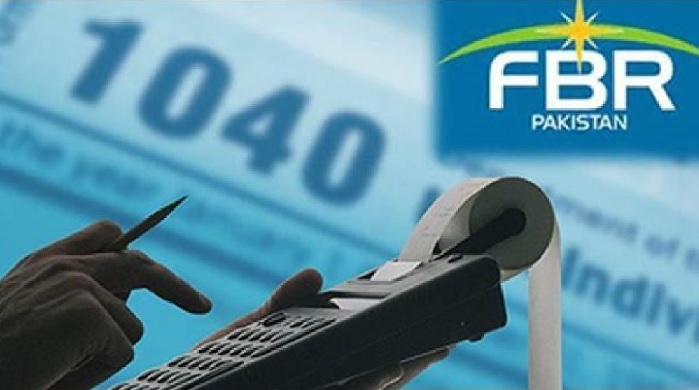Alternate Dispute Resolution (ADR) is a system introduced by the Federal Board of Revenue (FBR) whereby the taxpayer can refer the contentious issues for consideration and recommendations of the independent experts on the subjects of Income Tax, Sales Tax, Customs and Federal Excise Duty (FED) and make an out of court settlement with the tax collector in the light of such recommendations. Alternative dispute resolution mechanism is a system that operates side by side with the existing conventional appellate system but with simple procedures and lesser technicalities.
ADR is an important tool available to a taxpayer for disposal of tax litigation cases pending in different appellate fora including Commissioners Inland Revenue (Appeals), Appellate Tribunal Inland Revenue, High Courts and the Supreme Court of Pakistan. The key objective of introducing the ADR is expeditious resolution of contentious issues between the taxpayer and tax collector with no hardship to the taxpayers by independent experts free of cost.
The most important part of ADR is that it does not involve any fees, charges or costs.
What can be processed through ADR
Section 134A of the Income Tax Ordinance, 2001
Any matter pending before an Appellate Authority, except where prosecution proceedings have been initiated or where interpretation of question of law having effect on identical other cases is involved.
Section 47A of the Sales Tax Act, 1990
Any dispute under litigation at any Court of law or an Appellate Authority pertaining to;
(a) the liability of tax against the registered person, or admissibility of refunds, as the case may be;
(b) the extent of waiver of default surcharge and penalty;
(c) the quantum of input tax admissible in terms of sub-section (3) of section 7;
(d) relaxation of any procedural or technical irregularities and condonation of any prescribed time limitation; and
(e) any other specific relief required to resolve the dispute, except in the cases where first information reports (FIRs) have been lodged or criminal proceedings initiated or where interpretation of question of law having larger revenue impact in the opinion of the Federal Board of Revenue is involved
Section 195C of the Customs Act, 1969
Any dispute pending in any Court of law or any Appellate Authority pertaining to liability of customs duty, admissibility of refund or rebate, waiver or fixation of penalty or fine, confiscation of goods, relaxation of any time period or procedural and technical condition, except in the cases where first information reports (FIRs) have been lodged or criminal proceedings initiated or where interpretation of question of law having larger revenue impact in the opinion of the Federal Board of Revenue is involved. Section 38 of the FED Act, 2005 Any dispute under litigation at any Court of law or an Appellate Authority pertaining to;
(a) the liability of excise duty against the registered person or, as the case may be, admissibility of refunds;
(b) the extent of waiver of default surcharge and penalty;
(c) the confiscation of goods;
(d) relaxation of any procedural or technical irregularities and condonation of any prescribed time limitation; and
(e) any other specific relief required to resolve the dispute, except in the cases where first information reports (FIRs) have been lodged or criminal proceedings initiated or where interpretation of question of law having larger revenue impact in the opinion of the Federal Board of Revenue is involved.
How to apply for ADR?
An aggrieved person desirous of referring a matter for ADR, can submit an application in writing to the Chairman, FBR on the prescribed format. The taxpayer shall detail the nature of dispute or cause of hardship as to why the applicant believes that there exists a dispute or hardship. The application should also state the claim / pray i.e. what is finally requested from the Chairman, FBR to direct or order.
How is the ADR application processed by FBR?
An application for ADR is examined by the FBR to ascertain whether the matter is pending before any authority, tribunal or court; or the involved transaction(s) is/are closed already; necessary documents are attached as well as whether the matter is of a nature and volume that is appropriate for ADR. Once the application is approved, a committee for ADR (ADRC) is formed. After the formation and notification of the committee, the members of the committee are informed, and the application of the taxpayer along with related documents is forwarded to all the members. The committee members determine the issue(s) involved and make their recommendations. If necessary, the taxpayer /applicant is informed about the place, day and time fixed for the proceedings of the committee.

The recommendations of the ADRC are examined by FBR, however; the FBR may or may not agree with the recommendations of the ADRC either in full or in part. Further, the FBR may pass such order as it may deem appropriate within 90 days of the receipt of recommendations. Subsequently, copy of the order is sent to the aggrieved person, Chairman of the ADR committee and the concerned collector or commissioner. Accordingly, if the FBR does not pass an appropriate order within ninety days the ADRC’s recommendations shall be treated to be an order passed by FBR.
If the case is pending at Appellate Authority, Tribunal or Court, the order of FBR is communicated to the forum for consideration and appropriate order.
What if the taxpayer is not satisfied with the ADRC decision
It is worth mentioning that referring a matter to ADRC does not affect any of the rights already available with the taxpayer/applicant under the FE Act, 2005, Customs Act, 1969, ITA, 2001 and Sales Tax Act, 1990 or Rules made there under. Therefore, if the decision of the FBR / ADRC is not acceptable to the taxpayer, he or she has all the rights / privileges given by the law.
Know how to Invest in Stock Market through Roshan Digital Account here





